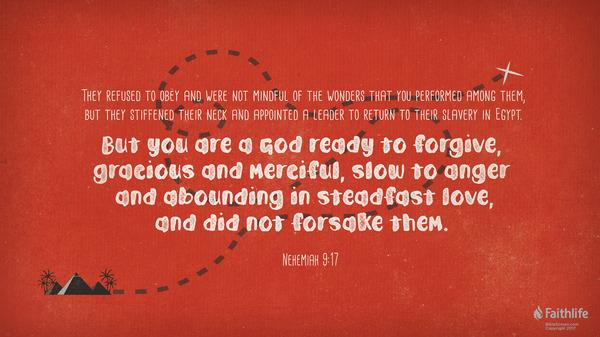When Jesus saw [the friends’] faith, He said to the paralytic, “Son, your sins are forgiven you.” Mark 2:5
The hardest part of forgiving another person is acting like the offense never occurred. But that is what forgiving someone means—restoring relationships to the status they enjoyed before the offense took place. It’s one thing to say, “I forgive you,” but it’s another to act like all the effects of an offense are completely erased. After all, according to Paul in 1 Corinthians 13, love is known by its actions more than its words.
Jesus faced this dilemma when He healed a paralytic man. When He told the man that his sins were forgiven (and by extension, he was healed), He was criticized. He was accused of blaspheming by saying He had the authority to forgive sins—something only God can do. So Jesus proved He had the authority to say, “I forgive you,” by doing something harder. He healed the man’s paralysis. After all, as Jesus explained, actions speak louder than words (Mark 2:8-11).
We cannot go through life without being hurt by others, so we should learn to forgive. Even more, we should practice demonstrating our forgiveness by our acts of lovingkindness. Look for opportunities to do both.
Forgiveness is to be set loose from sins. G. Campbell Morgan


You must be logged in to post a comment.